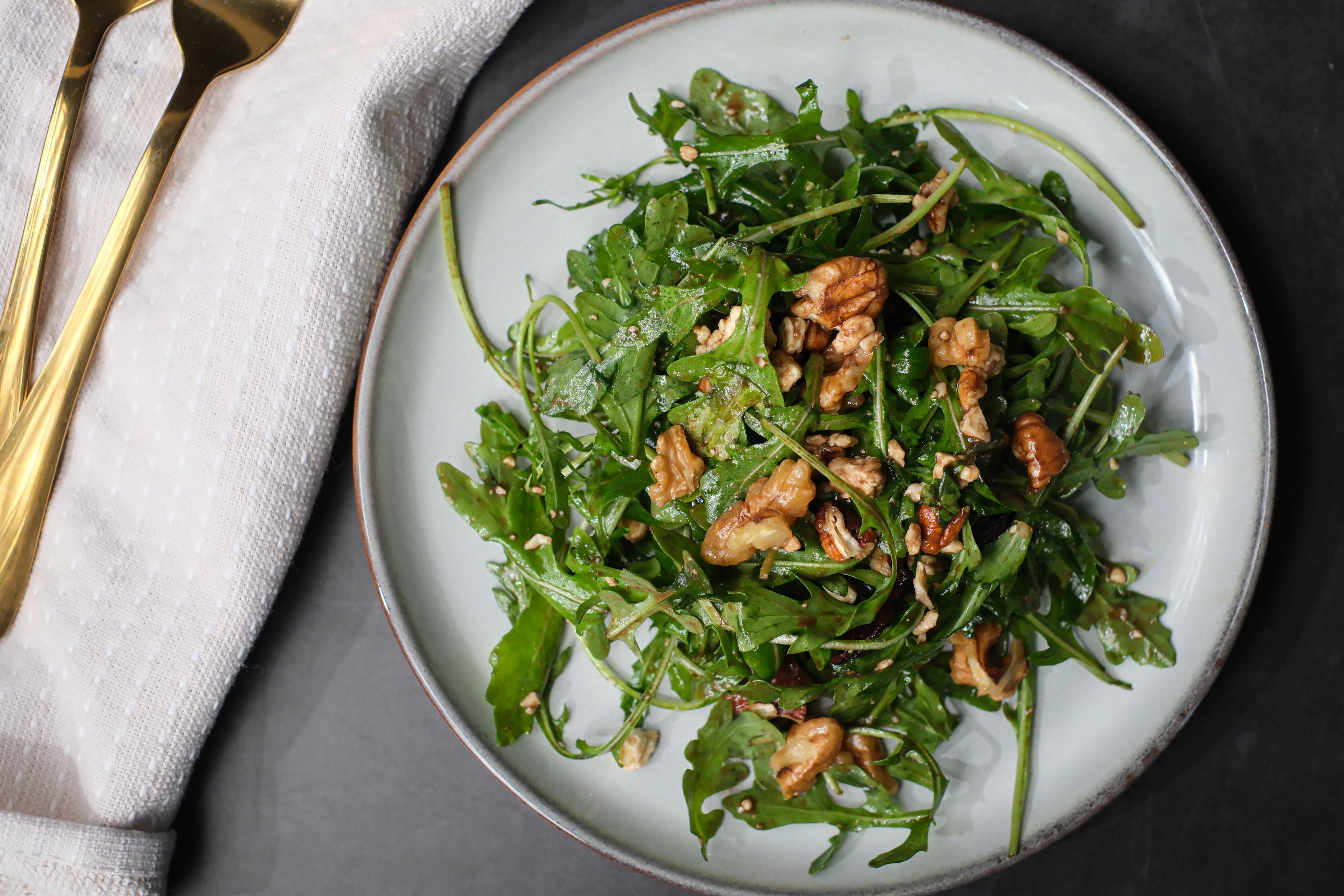Healthy Eating Hacks You Wish You Knew Sooner
In today's fast-paced world, maintaining a healthy diet can seem daunting. However, smart eating isn't about deprivation; it's about making informed choices that nourish your body and spirit. By adopting practical and sustainable habits, you can transform your relationship with food and enhance your overall well-being. This guide presents 13 smart eating tips that are not only easy to implement but also backed by scientific research, ensuring you can embark on a journey toward a healthier you. Each tip is designed to seamlessly integrate into your daily routine, making healthy eating an achievable and rewarding goal.
1. Mindful Eating: Savor Every Bite

Mindful eating involves paying full attention to the experience of eating and drinking, both inside and outside the body. This practice encourages you to slow down and savor each bite, which can lead to greater enjoyment of food and better digestion. Research shows that mindful eating can help reduce overeating and emotional eating by allowing you to recognize physical hunger and fullness cues. By focusing on the sensory experience of eating—the taste, texture, and aroma of food—you can cultivate a deeper appreciation for your meals, making eating a more satisfying and fulfilling experience.
2. Portion Control: Quality Over Quantity

Portion control is a crucial component of smart eating. It's not just about reducing calorie intake but about understanding the right amount of food your body needs. By focusing on portion sizes, you can enjoy a variety of foods without overindulging. Using smaller plates, bowls, and utensils can help you naturally eat less while still feeling satisfied. Additionally, learning to listen to your body’s hunger signals can prevent overeating. Studies suggest that people who practice portion control tend to maintain a healthier weight and have a more balanced diet, as they prioritize quality over quantity.
3. Balanced Meals: The Power of Macronutrients

Creating balanced meals that include a mix of carbohydrates, proteins, and fats is essential for sustained energy and overall health. Each macronutrient plays a unique role in your body; carbohydrates provide energy, proteins repair tissues, and fats support cell function. By incorporating a variety of macronutrients into every meal, you ensure that your body receives the necessary nutrients to function optimally. A balanced meal might include whole grains, lean proteins, healthy fats, and plenty of fruits and vegetables. This approach not only supports physical health but also promotes mental clarity and emotional well-being.
4. Hydration: The Forgotten Nutrient

Water is often overlooked in discussions about nutrition, yet staying hydrated is vital for maintaining health. Proper hydration supports digestion, nutrient absorption, and temperature regulation. It can also improve concentration and reduce fatigue. The general recommendation is to drink at least eight 8-ounce glasses of water a day, but individual needs can vary based on activity level, climate, and overall health. Including water-rich foods like fruits and vegetables in your diet can also contribute to your hydration needs. By prioritizing hydration, you can enhance your physical performance and cognitive function.
5. Whole Foods: Nature's Nutrient Powerhouses

Emphasizing whole foods in your diet is a fundamental aspect of smart eating. Whole foods are minimally processed and rich in essential nutrients, making them a healthier choice compared to processed foods. They provide a variety of vitamins, minerals, and antioxidants that support overall health. Foods like fruits, vegetables, whole grains, nuts, and seeds are excellent sources of fiber, which aids in digestion and helps maintain a healthy weight. By choosing whole foods over processed options, you can reduce your intake of added sugars, unhealthy fats, and sodium, leading to better health outcomes.
6. Meal Planning: A Strategy for Success

Meal planning is a proactive approach to eating that can save time, reduce stress, and improve dietary quality. By planning your meals in advance, you can ensure a balanced intake of nutrients and avoid last-minute unhealthy food choices. Meal planning allows you to incorporate a variety of foods into your diet, promoting nutritional diversity. It also helps with portion control and can prevent food waste. Creating a weekly meal plan and shopping list can streamline your grocery trips and ensure you have the necessary ingredients on hand to prepare healthy meals.
7. Snacking Wisely: Energy Boosters

Smart snacking can help maintain energy levels and prevent overeating at mealtimes. Choosing nutrient-dense snacks that provide a mix of macronutrients can keep you satisfied between meals. Options like nuts, yogurt, fruit, and whole-grain crackers offer a combination of healthy fats, proteins, and carbohydrates. It's important to be mindful of portion sizes and to listen to your body's hunger cues. Snacking with intention can prevent mindless eating and support a balanced diet. By planning snacks ahead of time, you can make healthier choices that align with your nutritional goals.
8. Cooking at Home: Control and Creativity

Cooking at home allows you to take control of the ingredients and preparation methods used in your meals. This can lead to healthier eating habits as you can limit the use of unhealthy fats, sugars, and sodium. Home-cooked meals are often more nutritious and can be tailored to meet your dietary needs and preferences. Cooking can also be a creative and rewarding activity, providing an opportunity to experiment with new recipes and flavors. By preparing meals at home, you can develop a deeper connection to the food you eat and enjoy the satisfaction of nourishing yourself and your loved ones.
9. Mindful Grocery Shopping: Intentional Choices

Mindful grocery shopping involves making intentional choices that align with your health goals. Start by creating a shopping list based on your meal plan to avoid impulse purchases and ensure you have the ingredients needed for healthy meals. Focus on whole foods and read labels to make informed decisions about packaged products. Pay attention to the placement of items in the store, as healthier options are often located around the perimeter. Shopping with mindfulness can help you resist marketing tactics and make choices that support your well-being, ultimately leading to a healthier diet.
10. Eating Seasonally: Freshness and Flavor

Eating seasonally means choosing fruits and vegetables that are in their natural growing season. Seasonal produce is often fresher, more flavorful, and more nutritious than out-of-season options. It can also be more affordable and environmentally friendly, as it requires less energy for transportation and storage. By incorporating seasonal foods into your diet, you can enjoy a variety of flavors and nutrients throughout the year. This practice can also encourage you to try new foods and recipes, adding diversity to your diet and supporting local agriculture.
11. Limiting Sugar: Sweet but Subtle

Excessive sugar intake is linked to a range of health issues, including obesity, diabetes, and heart disease. Limiting added sugars in your diet is a smart eating strategy that can improve your health. Start by reducing sugary drinks and snacks, and be mindful of hidden sugars in processed foods. Opt for natural sweeteners like honey or maple syrup in moderation, and satisfy your sweet tooth with fruits. Reading food labels can help you identify and avoid added sugars. By cutting back on sugar, you can stabilize your energy levels, improve your mood, and reduce your risk of chronic diseases.
12. Diversifying Your Diet: A Rainbow on Your Plate

Eating a diverse range of foods ensures you receive a wide array of nutrients necessary for optimal health. Aim to fill your plate with a variety of colors, as different pigments in fruits and vegetables are associated with specific health benefits. For example, red foods like tomatoes and strawberries are rich in antioxidants, while leafy greens provide essential vitamins and minerals. Diversifying your diet can also prevent food fatigue and make meals more enjoyable. By embracing a colorful and varied diet, you can support your body's nutritional needs and enhance your overall well-being.
13. Listening to Your Body: The Hunger-Fullness Scale

Tuning into your body's hunger and fullness signals is a key aspect of smart eating. The hunger-fullness scale is a tool that can help you identify when to start and stop eating based on your body's cues. On a scale from 1 to 10, with 1 being ravenously hungry and 10 being uncomfortably full, aim to eat when you're at a 3 or 4 and stop when you reach a 6 or 7. This practice encourages you to eat when you're truly hungry and to stop before you feel overly full. By listening to your body's signals, you can develop a more intuitive and balanced approach to eating.
Embracing a Healthier You

Adopting smart eating habits is a journey, not a destination. By implementing these 13 tips, you can create a sustainable and enjoyable approach to eating that supports your health and well-being. Each tip is designed to help you make informed choices that align with your lifestyle and nutritional needs. Remember, it's not about perfection but about progress and balance. As you incorporate these strategies into your daily routine, you'll likely find that healthy eating becomes second nature, leading to a happier and healthier you.